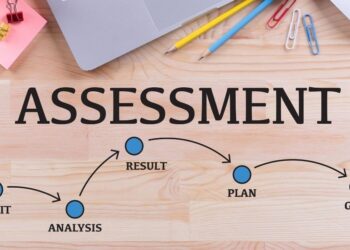Cracking the Code: Innovative Pedagogical Methods for Modern Educators
Explore how teacher training in the U.S. is evolving to equip educators with cutting-edge strategies for unlocking student potential.
1. The Rise of Social-Emotional Learning (SEL)
In 2025, a significant shift in U.S. teacher training involves integrating Social-Emotional Learning (SEL) into the classroom. This approach emphasizes activities like mindfulness and relationship-building exercises, designed to cultivate students’ emotional well-being alongside their academic performance. By prioritizing SEL, educators aim to create a more supportive and understanding learning environment.
2. Technology as a Tool for Personalization
Technology-Enhanced Learning is becoming increasingly prevalent. Teachers are leveraging tablets, adaptive learning software, and interactive digital platforms to tailor instruction to meet the unique needs of each student. This personalized approach not only boosts engagement but also allows educators to cater to diverse learning styles effectively.
3. Project-Based Learning Takes Center Stage
Traditional rote memorization is giving way to Project-Based and Inquiry-Based Learning. Students are now engaging in real-world projects that demand critical thinking and collaboration. For example, a class might design and maintain a sustainable garden, connecting academic concepts to practical applications and fostering problem-solving skills.
4. A Glimpse at Pedagogical Trends
The following table illustrates the innovative pedagogical trends that are shaping modern education:
| Innovative Pedagogical Trend | Implementation Example | Primary Benefit |
|---|---|---|
| Social-Emotional Learning (SEL) | Mindfulness, relationship-building exercises | Improves emotional well-being and academics |
| Technology-Enhanced Learning | Tablets, adaptive software, interactive apps | Enables personalized instruction and engagement |
| Project-Based/Inquiry-Based Learning | Real-world projects (e.g., sustainable garden) | Fosters critical thinking and collaboration |
source_name: SensoryEdge “Emerging Trends in Elementary School Teaching: A Snapshot of 2025”
Classroom Harmony: Mastering Management Techniques that Transform Learning Spaces
Explore the shift towards student-centered classrooms and how innovative management techniques foster engagement and well-being.
1. The Evolving Landscape of Classroom Management
In the United States, traditional classroom management is giving way to approaches that value connection, engagement, and emotional intelligence. This transformation is reshaping how teachers interact with students, emphasizing relationship-building and self-regulation over strict rule enforcement. Modern classrooms are becoming more responsive and inclusive, adapting to the needs of hybrid learning and digital education.
2. Technology’s Role in Harmonizing Learning Environments
Technology is playing an increasingly significant role in this evolution, with learning management systems and behavior tracking apps becoming essential tools. These technologies help teachers create environments where students feel supported and understood, contributing to a more harmonious atmosphere conducive to learning. This tech-driven shift allows for more personalized and responsive teaching strategies.
3. Investment Surge Reflects Commitment to Well-being
The growing emphasis on creating supportive learning spaces is evident in the increasing investment in classroom management systems. The market is experiencing rapid growth, signaling schools’ dedication to fostering environments that support both academic achievement and student well-being. This investment underscores the importance of effective classroom management in modern education.
4. Market Growth in Classroom Management Systems
The classroom management systems market is not just evolving in its approach but also in its economic footprint. The projected growth from $8.55 billion in 2024 to $10.64 billion in 2025 highlights the increasing value placed on effective classroom management tools and strategies. This growth reflects a broader trend towards prioritizing student well-being and engagement in educational settings.
Beyond the Lecture: Interactive Professional Development Strategies That Engage Teachers
Explore how U.S. schools are shifting towards interactive, collaborative, and data-driven teacher professional development to enhance classroom leadership and student learning.
1. The Rise of Interactive PD
In the United States, there’s a notable shift towards interactive professional development (PD) for teachers. Instead of traditional lectures, the focus is now on engaging teachers through collaboration, technology, and personalized learning experiences. This approach aims to empower educators and foster innovation in the classroom.
2. Educators’ Confluence: A Model for Engagement
Events like the Educators’ Confluence, hosted by Brightways Learning, exemplify this trend. These conferences emphasize knowledge sharing, reflective practice, collaborative creation, and practical strategies. By combining these elements, teachers are better equipped to continuously grow and implement innovative teaching methods.
3. Year-Round, Personalized Learning Paths
Organizations like Sched, in partnership with various education experts, are advocating for year-round PD programs. These programs prioritize personalized learning paths and address the diverse needs of different generations of teachers. The use of hybrid models ensures continuous engagement and support throughout the year.
4. Technology Integration and Peer Learning
Platforms such as Nearpod are playing a crucial role in this transformation by promoting the use of online interactive tools. These tools facilitate immediate feedback, resource generation, and peer learning among teachers. This collaborative approach not only enhances individual skills but also fosters a supportive community of educators.
5. Data-Driven and Collaborative Classrooms
The overall trend in U.S. schools is moving towards project-driven, immersive, collaborative, and data-oriented methods. This shift aims to enhance classroom leadership and evaluation skills, ultimately leading to increased teacher satisfaction and the creation of more inclusive, high-quality learning environments for students.
Pathway to Certification: Navigating Teacher Licensing and Career Advancement
Explore the evolving landscape of teacher certification, licensing, and career advancement, focusing on recent research and policy discussions shaping the profession.
1. The Wage-Quality Conundrum in Teacher Certification
Recent studies are shedding light on the complexities of teacher certification and its impact on both teacher compensation and classroom effectiveness. While state-mandated teacher testing may lead to a salary increase of 3-5% for educators, research indicates that it doesn’t necessarily translate into improved teaching quality. This raises questions about the true value and purpose of current certification processes.
2. Examining the Impact of Teacher Testing on Salaries
The National Bureau of Economic Research (NBER) investigated the correlation between state-required teacher testing and wage increases, alongside any observable effects on teaching quality. The findings offer a data-driven perspective on the financial implications of certification.
3. The Equity Challenge in Teacher Placement
Furthermore, disparities in teacher placement reveal that educators with stronger credentials tend to be concentrated in schools serving higher-achieving students, leaving those from disadvantaged backgrounds with potentially less experienced or qualified teachers. This highlights the ongoing challenge of ensuring equitable access to quality education for all students.
4. The Debate Around Alternative Certification Programs
The rise of alternative certification programs, which now account for nearly half of the market, has sparked debate regarding their rigor and effectiveness. Concerns have been raised about the adequacy of training and practical experience provided by these programs, prompting calls for stricter oversight and higher standards to ensure that new teachers are well-prepared for the classroom.
5. Balancing Quality, Access, and Advancement
The American education system is striving to strike a balance between maintaining high standards for teacher quality, broadening access to the profession for diverse talent, and creating clear pathways for career advancement. Ongoing efforts to refine assessment systems and elevate the standards of training programs aim to unlock the full potential of teachers and enhance classroom outcomes.
Q&A
Question 1: What are some key innovative pedagogical methods transforming teacher training in the U.S. in 2025, as highlighted in the provided text?
Answer: The text emphasizes several key shifts: the integration of Social-Emotional Learning (SEL) to improve student well-being; the increased use of Technology-Enhanced Learning for personalized instruction; and a move towards Project-Based and Inquiry-Based Learning to foster critical thinking and collaboration. These methods aim to create more engaging and supportive learning environments.
Question 2: How is technology impacting both teaching methodologies and classroom management in U.S. schools?
Answer: Technology is playing a dual role. In teaching, it enables personalized learning through adaptive software and interactive platforms. In classroom management, learning management systems and behavior tracking apps help create supportive and harmonious learning environments, allowing for more responsive teaching strategies and personalized interventions.
Question 3: What are the main criticisms of traditional high-stakes testing, and what alternative assessment methods are gaining traction?
Answer: High-stakes testing is facing criticism for potentially narrowing the curriculum, exacerbating inequalities, and failing to offer a comprehensive view of student learning. The Instructure survey reveals significant dissatisfaction among teachers, administrators, and parents. Alternative assessments focusing on critical thinking, problem-solving, and creativity are gaining popularity as a more holistic measure of student progress.
Question 4: How is professional development for teachers evolving to support these innovative approaches?
Answer: Teacher professional development is shifting towards interactive, collaborative, and data-driven methods. This includes conferences emphasizing knowledge sharing and collaborative creation, year-round personalized learning paths, and the use of online interactive tools to facilitate peer learning and immediate feedback. The goal is to empower educators with the skills and resources to implement innovative teaching practices.
Question 5: What is the current state of teacher certification and licensing, and what are some of the challenges and debates surrounding it?
Answer: Studies show that while state-mandated teacher testing may increase salaries by 3-5%, it doesn’t necessarily improve teaching quality. Disparities in teacher placement also exist, with better-credentialed teachers often concentrated in higher-achieving schools. The rise of alternative certification programs, comprising nearly half the market, raises concerns about their rigor and effectiveness, leading to calls for stricter oversight and higher standards.













